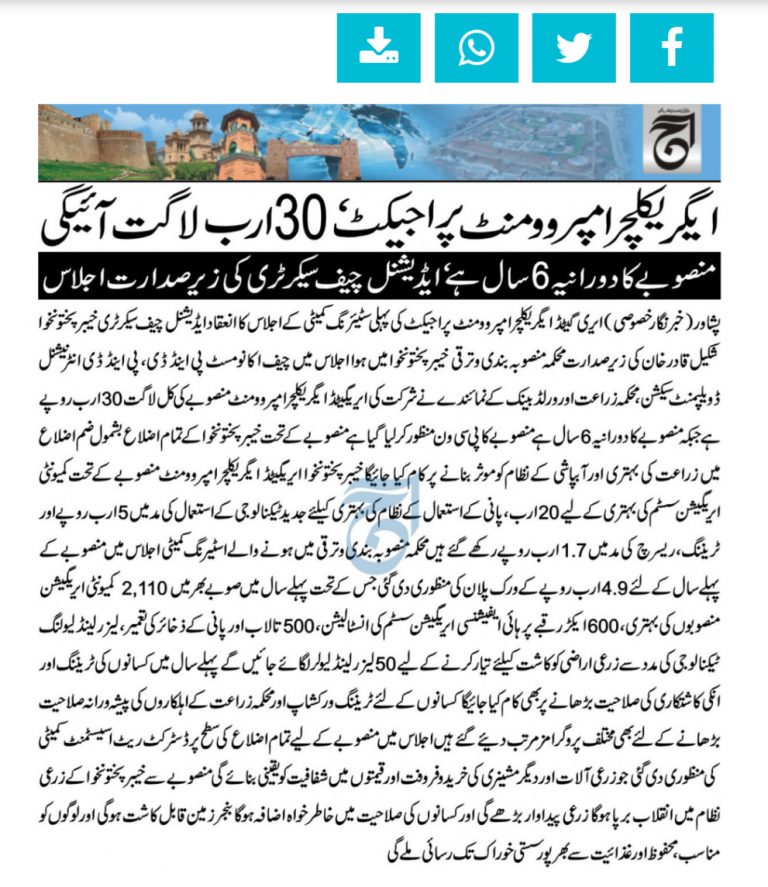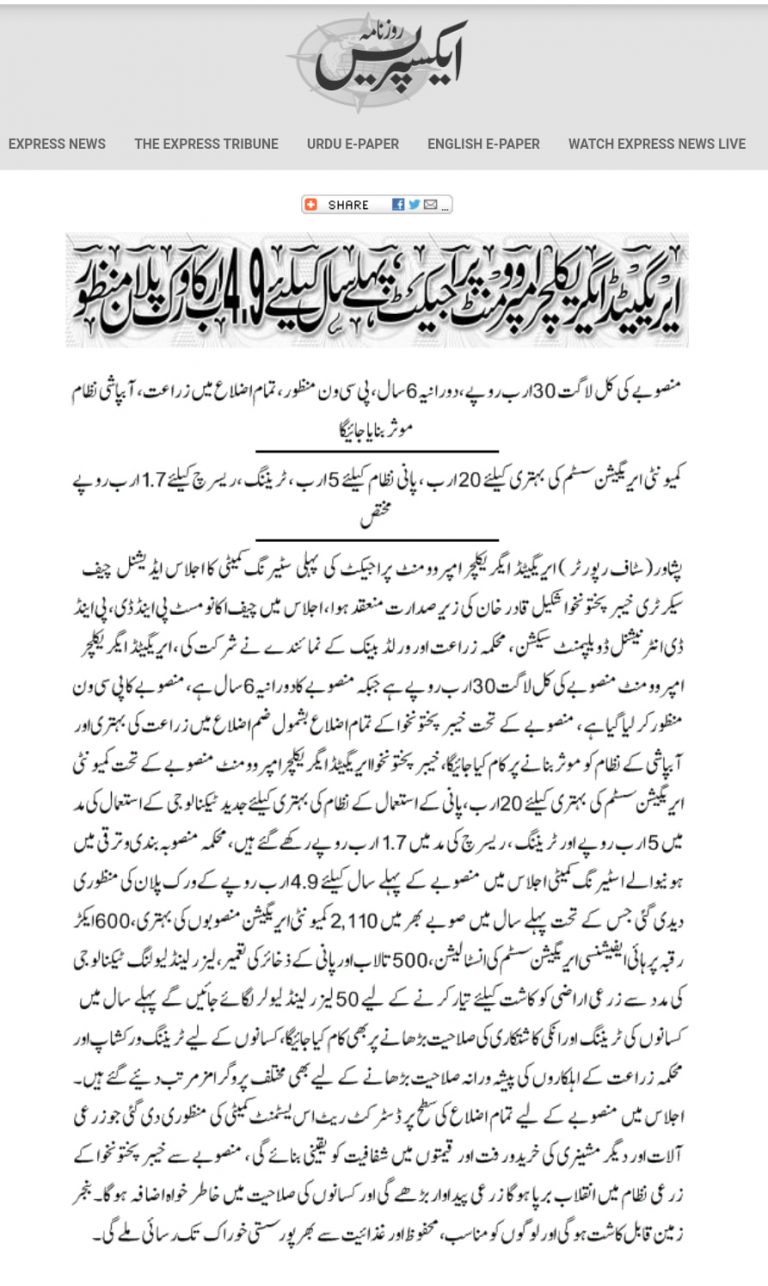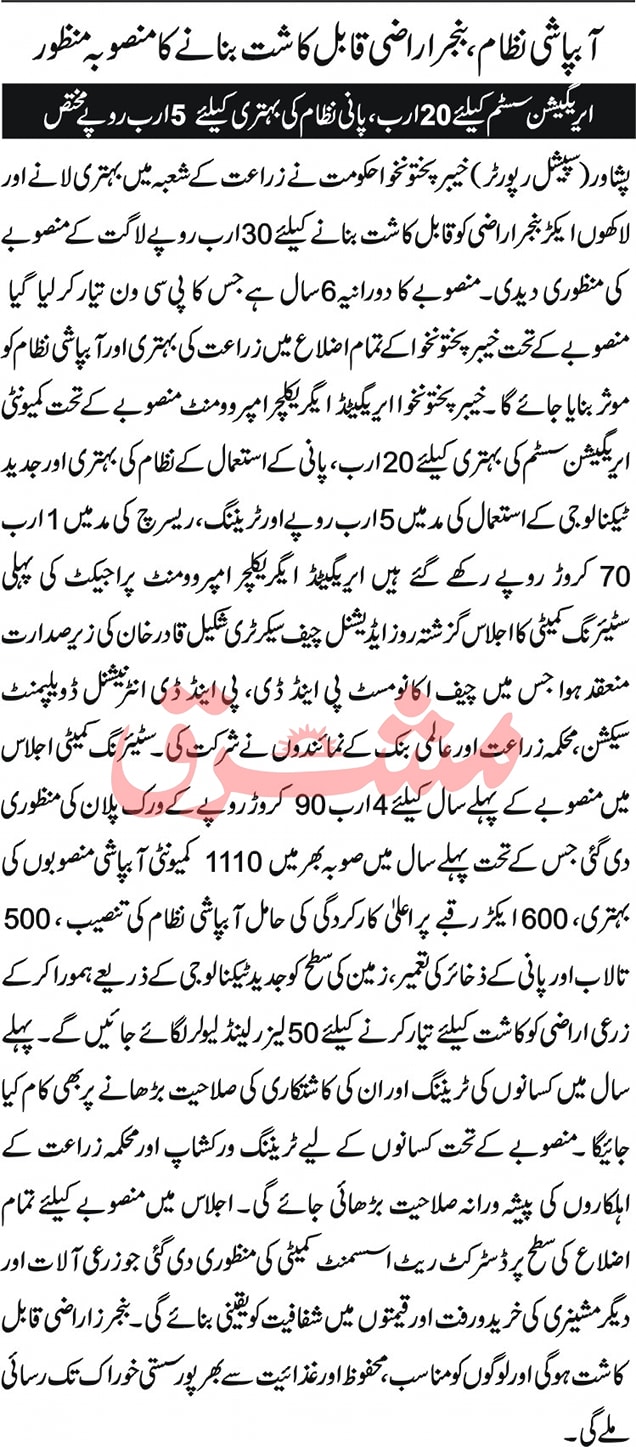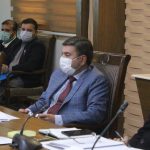The first meeting of the Steering Committee of the Irrigated Agriculture Improvement Project was held under the chairmanship of Additional Chief Secretary Khyber Pakhtunkhwa Shakeel Qadir Khan at the Planning and Development Department, Khyber Pakhtunkhwa. Officials and a representative of the World Bank attended. The total cost of the Irrigated Agriculture Improvement Project is Rs. 30 billion while the duration of the project is 6 years. PC-1 of the project has been approved. Under the project, work will be done to improve agriculture and make the irrigation system efficient in all districts of Khyber Pakhtunkhwa, including the integrated districts. Under the Khyber Pakhtunkhwa Irrigated Agriculture Improvement Project, Rs. 20 billion has been earmarked for the improvement of community irrigation system, Rs. 5 billion for use of modern technology for improvement of water use system and Rs. 1.7 billion for training and research. The steering committee meeting at the Planning and Development Department approved a work plan of Rs 4.9 billion for the first year of the project, under which 2,110 community irrigation projects across the province were improved in the first year, covering an area of ??600 acres. Installation of efficiency irrigation system, construction of 500 ponds and water reservoirs, 50 laser land levellers will be installed to prepare agricultural lands for cultivation with the help of laser land leveling technology, training of farmers in the first year and enhancing their farming capacity. Work will also be done on it. Training workshops for farmers and various programs have also been set up to enhance the professionalism of the Agriculture Department personnel. The meeting approved the District Rate Assessment Committee at the district level for the project, which will ensure transparency in the procurement and prices of agricultural implements and other machinery. The project will revolutionize the agricultural system in Khyber Pakhtunkhwa, increase agricultural production and significantly increase the capacity of farmers – barren land will be cultivable and people will have access to adequate, safe and nutritious affordable food.
Press Coverage





